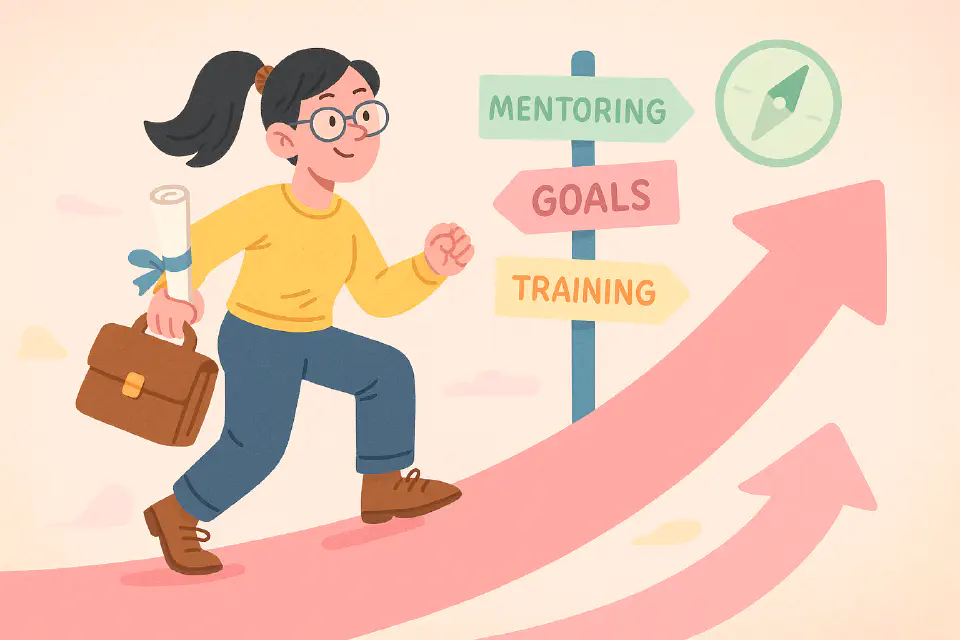
HR Career Planning & Development
Your HR career won’t grow on autopilot. With the right strategy, reflection, and support, you can build a path that’s both impactful and sustainable.
You spend your days supporting other people’s growth. But who’s planning yours?
HR professionals often deprioritize their own development — ironically, because they’re so focused on everyone else’s. But without active career planning, you risk plateauing or burning out.
Let’s change that.
What Is HR Career Planning?
Career development is how you grow. Career planning is how you steer.
Why You Need a Plan (Even If You’re Happy)
Planning doesn’t mean dissatisfaction. It means ownership.
Reasons to plan include:
- Avoiding stagnation
- Building a long-term learning path
- Preparing for leadership or specialization
- Responding to life changes proactively
- Designing a career that fits your values
Building Your Personal HR Roadmap
Here’s a simple structure to start with:
1. Self-Assessment
- What are your strengths?
- What drains your energy?
- What feedback have you heard?
Tools: 360° feedback, reflection journals, skills matrix
2. Define Your Direction
- Do you want to lead or go deep?
- Generalist or specialist?
- What does “impact” look like to you?
Be honest about your values, lifestyle, and energy.
3. Identify Gaps
Compare your target role(s) to your current profile:
- Skills & knowledge
- Experience (projects, scale, exposure)
- Visibility or influence
Then prioritize what to build.
4. Choose Development Methods
Options include:
- On-the-job projects and stretch assignments
- Shadowing and cross-functional work
- Online courses (e.g. AIHR, Coursera)
- Certification (e.g. SHRM, CIPD, HRCI)
- Conferences and communities
- Mentoring or coaching
5. Track and Reflect
- Set quarterly or annual goals
- Block time for reflection (journals, check-ins)
- Adjust direction based on experience and interest
Career planning is not static — it evolves with you.
The Role of Mentoring
Mentors can help you:
- Explore options and blind spots
- Expand your network
- Stay accountable
- Navigate setbacks and decisions
Find someone who listens more than lectures. And give back by mentoring others, too.
Organizational Support (or Lack Thereof)
Some companies invest heavily in HR development. Others… don’t.
If your organization lacks structured support:
- Build your own plan independently
- Ask your manager for time, budget, and support
- Join external HR communities or peer groups
Career Planning at Every Stage
| Career Stage | Key Focus |
|---|---|
| Entry-level | Exposure, breadth, confidence |
| Mid-career | Specialization, visibility, strategic impact |
| Senior/Executive | Legacy, mentoring, organizational transformation |
You don’t need to have it all figured out — you just need to stay intentional.
Final Thought
Your HR career can be a source of growth, meaning, and contribution — if you plan for it. You help others thrive. Don’t forget to invest in yourself.